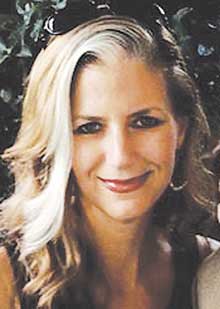 By Margaret Evans, Editor
By Margaret Evans, Editor
The Beaufort International Film Festival is fast approaching – along with the Oscars – so it’s time, once again, for my annual reflection on movies. Yeehaw! This allows for – nay, necessitates – my annual Winter Movie Binge. I just love hunkering down in a dark theater this time of year . . . and I really love saying, “I’m seeing two movies back-to-back today. It’s a work thing.”
I’m about halfway through my mission to see all the films nominated for Best Picture, and the ones I’ve hit so far are all based on “true stories.” (About “real people.”) As you might have heard – and possibly predicted – controversies immediately arose around these biopics, The Imitation Game, American Sniper, and Selma, all of which have been accused of distorting the facts upon which they’re based. I thought all three movies were outstanding – most critics agreed – but it’s hard to ignore the backlash that each has inspired from certain quarters. Different groups are angry with different filmmakers for different reasons. But the more I think about it, it seems to me the motives behind the factual distortions are not so different at all.
Filmmakers are our modern-day storytellers, right? And every good story needs certain components: a narrative arc, conflict and resolution, an evil villain – at least one! – and, of course, a hero. Forget the fact that in real life, most of us are neither villain nor hero (or maybe a little of both), and our “narrative arcs” spike up and down like the line on a politician’s polygraph test. Real life is messy and convoluted, open-ended and possibly even random (eeek!) . . . but most human brains don’t fancy infinite chaos. Stories help us create psychic order; they give us a sense of meaning and structure and even – I detest this word! – closure. It’s been this way since the beginning of human history. Or so goes the story, anyway . . .
But back to our Oscar-nominated movies. Each of these filmmakers faced the same challenge. How do you stay true to history while still telling what the human soul so deeply longs to tell (and hear): a story? The answer, according to this year’s crop of big time filmmakers? You don’t.
(I think this is the place where the pros usually say something like “Spoiler Alert.” If you haven’t seen these movies yet, and plan to, you’d best move along.)
The Imitation Game tells the story of computer science pioneer Alan Turing and his efforts to break Nazi codes during World War II. It’s a fascinating tale and Benedict Cumberbatch gives a nuanced, heart-rending performance as Turing. The bad rap, however, is that Cumberbatch’s Turing is nothing like the actual Turing, who, according to the film, committed suicide in 1954 after being convicted two years earlier of homosexuality – still a criminal offense in Great Britain at the time – and forced to go on hormonal therapy. While the Turing we see in this film is a prickly, socially-awkward outcast, according to Christian Caryl at the New York Review of Books, the real Turing could be quite charming and was well-liked by his colleagues. The movie also plays down Turing’s homosexuality – he’s borderline “closeted” – while the real Turing was apparently quite openly and cheerfully gay. Caryl also disputes the films assertion that a depressed Turing committed suicide, citing evidence that his death might well have been accidental.
“These errors are not random,” writes Caryl. “There is a method to the muddle. The filmmakers see their hero above all as a martyr of a homophobic Establishment, and they are determined to lay emphasis on his victimhood.”
And this is important: While today’s story lovers still yearn for a hero, what we really like is a hero who is also a victim – preferably a victim of a blinkered, judgmental society. Thus, it seems, the truth of Alan Turing has been distorted in service to that archetype. Incidentally, the movie has also been accused of exaggerating Turing’s accomplishments, implying he single-handedly invented the machine that broke the Nazi code, when, in fact, that achievement was very much a team effort. (Anything to burnish the hero!)
It appears something similar happened with American Sniper, which tells the story of Navy SEAL Chris Kyle, known to his brothers-in-arms as The Legend thanks to his incredibly reliable marksmanship from the rooftops of war-torn Iraq. The film emerged with great reviews and tremendous box office, only to be slapped down with a backlash that’s still reverberating around the Internet. Any filmmaker who dares touch the flame that is the Iraq War should probably expect as much, and if anybody’s badass enough to shrug off a mountain of criticism, it’s Clint Eastwood. (Go ahead, New Republic; make my day.) But the movie has now piled up so much political baggage, its chances of winning the Oscar are practically nil. So are leading man Bradley Cooper’s, and that’s sad, because his is a beautiful and complex portrayal.
But, apparently, that’s part of the problem. According to the movie’s critics, Cooper has given us a Chris Kyle who’s far more “beautiful and complex” than the real Chris Kyle. Before it was a movie, American Sniper was a book written by Kyle himself – a memoir of his time in Iraq, where he served four tours. I haven’t read the book, but I have read the criticism, and it seems the Kyle in the book is more gung-ho about killing Iraqis – less reflective and tormented – than the Kyle in the movie . . . a man of bravado and braggadocio instead of the humble, aw-shucks sharpshooter we meet on the screen. As I mentioned, this film is now a political football – the left and the right are hurling it back and forth with their usual poor sportsmanship – so I’ve given up trying to understand the “real” Chris Kyle. All I know is that that this movie gave me a compelling narrative arc, some nasty villains, and a regular guy who became a hero . . . and (bonus points!) a victim. It quenched my thirst for “story” and shook me up but good.
And then there was Selma. I knew all about the controversy before I entered the theater. Word had it that director Ava Duvernay had misrepresented the relationship between Dr. Martin Luther King, Jr. and President Lyndon Baines Johnson, making Johnson out to be King’s political foe and obstructionist instead of his partner and co-conspirator in the pursuit of black voting rights.
And it’s true. From what I know of history, LBJ is mischaracterized in this movie, and it’s a fairly flagrant spin job. Duvernay isn’t making any apologies, having stated for the record, “I wasn’t interested in making a white-savior movie; I was interested in making a movie centered on the people of Selma.” And that she did. Sort of.
But what she really did was to make a movie centered on Martin Luther King, Jr. And I, in my infinite wisdom (ha!), believe she twisted her portrait of Johnson – and the historic facts – for the same reason the makers of the other two movies did what they did: to build up the hero of her story. A villainous LBJ makes for an even more luminous MLK. And David Owetoyo is, indeed, luminous in this role. The screen shines with his presence and the movie, itself, is radiant.
All three of these Oscar-nominated films have a point of view . . . yes, probably even a “political” perspective. The filmmakers distort history in service to the story each wants to tell. It’s unseemly, I suppose, but I can’t really blame them. They’re only human, after all, and that’s what we humans do. From the campfire to the dinner table, from the locker room to the water cooler to the beauty parlor – we spin history into stories. History is far less tidy, you see . . . and far more difficult to judge. In real life, it’s often hard to tell the good guys from the bad guys . . . and lots of people (most people?) are both. Real life is full of unresolved conflict, unanswered questions, and moral ambiguity. The “facts” that make up history don’t easily weave themselves into meaningful patterns. For that, we need storytellers.
And I love a good story as much as the next person – maybe more. But I always try to take them with the proverbial grain of salt. “Don’t go telling stories,” my mama used to say when I was little. And I knew, even then, that “story” is sometimes just a nice word for something else.
Margaret Evans is the editor of Lowcountry Weekly. Read more Rants & Raves here or visit her blog at www.memargaret.com






